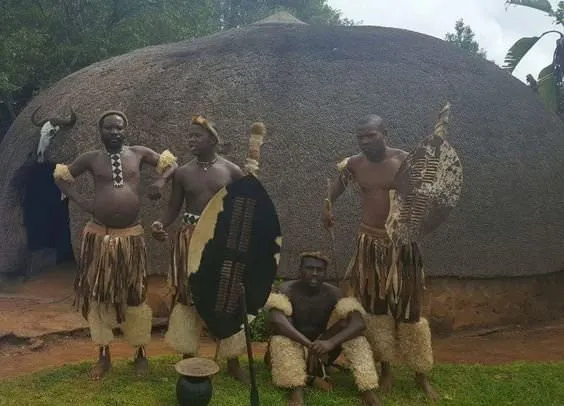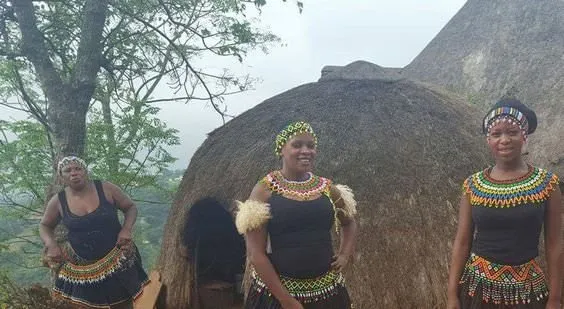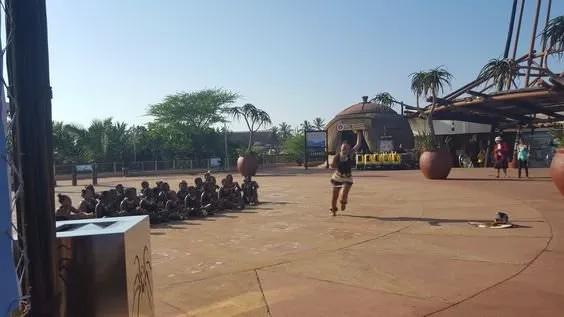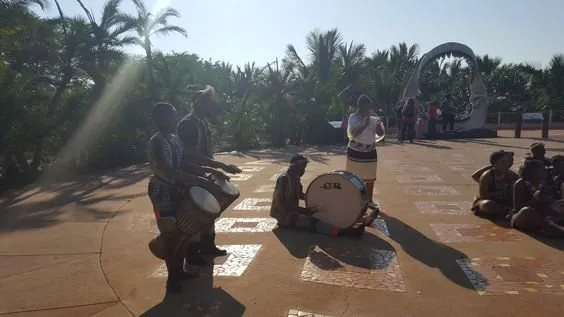South Africa – The Rainbow Nation. In my country we have people from all different races, cultures and religion. I love the diversity of my land. WELCOME TO AFRICA! A place where our skin colour is different shades, our languages are unique and culture is rich and deep.
I Live In The South African Province Of Kwa Zulu Natal – The Land Of The Zulus
The Zulu culture is very prominent in KZN (Kwa Zulu Natal). The Zulu people are the founders of this land and the namesake Kwa Zulu means “place of the Zulus”.
Fact:
Natal was the name given to the area when it was colonised by Britain, when this colonisation came to an end, it was renamed “Kwa Zulu Natal. Here in KZN (the abbreviation for the province), the Zulu people make up the majority of the population and while they have absorbed western ways and modern trends, many of them still very much practice the traditions and customs of their original culture.
While the majority of the Zulu population now live exactly like your everyday Westerner, there are still a handful of people who prefer to stick to their roots. These cultural Zulus are usually found living with their tribes out in the more rural and quiet areas. In my location, many still live in their traditional grass and mud huts, eating from the land and practising their culture religiously.
Not far from my home, there is an example of such a village! I have been very lucky in that I have sat down for a small chat with this tribe on more than one occasion! These villagers let you visit and for a fee (to run their village) they will perform their dances, let you into their huts and teach you their ways. These people belong to the Ghasa Clan, a traditional Zulu tribe whose ancestors date back hundreds of years.

More About The Gasa Clan
The Zulu culture is extremely unlike the Western culture, the traditions, beliefs and general way of life is in some ways, quite extreme. For instance:
Traditional Zulu Clothing
Our traditional Zulu people are outfitted in animal skins, grass and colourful beads. The traditional Zulus dress according to their marital status, interesting right! Usually the outfits of men consist of a skirt made from animal fur (those with the highest status in the tribe wear leopard skins), women wear grass skirts. These days the skirts are usually placed over some sort of undergarment, to keep things more modest. Married men wear animal skin headbands. It is custom for unmarried women to go topless, but today this is a bit of a taboo, so they compensate by wearing a bikini top. The ladies decorate their headdresses and clothing with an array of colourful beads!

Zulu Women - Image By @sweetpea
Zulu Dining
Meals consist mostly of maize, vegetables such as pumpkin, cabbages, tomatoes and onions; nothing much different here. But the Zulu people have been known to brew their own beer from sorghum and maize. I’ve never tasted the beer but is said to be refreshing with a somewhat sour taste. A very traditional drink, which has actually been boxed and can now be bought in stores, is Amazi.
In a nut shell: Amazi is curdled sour milk (not my cup of tea)! Even more westernised Zulu people enjoy this traditional drink.
Zulu Beliefs
Those who hold tight to the age-old Zulu culture believe that their ancestors live in a spirit world, and regard them as intermediaries between two worlds. They place great emphasis on their ancestors and they are often praised and worshiped. When someone dies, their funeral is taken very seriously. Traditionally, Zulu people believed in Sangomas (spiritual healers), since sicknesses and bad luck were seen more as the wrath of an angry ancestor than a health issue or just being in the wrong place at the wrong time.
Other Zulu Practices:
Zulu Dancing.
The Zulu people have a creative and unique way of dancing, a lot of the moves entail kicking legs up high, shaking of the arms and hands and dancing with instruments such as sticks, spears and drums.


Crafting out of clay, beads and grass/leaves.
The Zulu nation are born artists and creatives and are known for their colourful beadwork, sculpturing and baskets.
Learn How To Say Hello In Zulu
Sawubona (pronunciation: s-ow-oo-baw-na)
Learn How To To Say Goodbye In Zulu
Hamba kahle (pronunciation: ha-ummba, ka-gglair)
On that note -
Much love - @sweetpea

